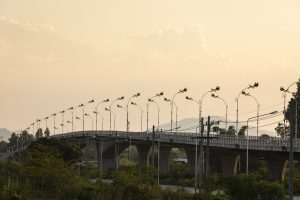January passed with mixed fortunes for Thailand’s leaders. The good news was that the country, despite its large trade surplus with the United States, was not slapped with tariffs by the second Trump administration. Among the bad news was the growing notoriety of Thailand as a gateway to the transnational, typically Chinese-led scam facilities operating in neighboring Myanmar and Cambodia.
What Thais narrowly term the “call center” scam, though it may encompass other forms of cyber scams, is progressively being seen as the top concern facing their government. The much-cited State of Southeast Asia 2024 Survey Report by the ISEAS-Yusof Ishak Institute found that 58.2 percent of Thais – substantially higher than their regional counterparts, bar Laotians – think so. Moreover, the scam problem outranked the Myanmar crisis (41.3 percent), which international observers generally regard as Thailand’s most acute challenge, even if the two are not mutually exclusive.
The alarm bells are reaching a crescendo now that recent, internationally publicized kidnappings of Chinese nationals along the Thai-Myanmar border near Myawaddy, an important trading town and epicenter of illicit activities in Myanmar’s Kayin (Karen) State, have dented Chinese tourist arrivals to Thailand and prompted the involvement of Chinese government officials led by Assistant Minister of Public Security Liu Zhongyi.
That last development is both a blessing and a curse. While intervention from a major power is crucial in fast-tracking the fight against transnational scammers, especially in a conflict-ridden frontier like Myawaddy where control keeps shifting, it exposes the weakness of Thai authorities in keeping the situation in check.
Thailand has already been accused of facilitating the scam epidemic, whether through corrupt individual officials accepting bribes and turning a blind eye to trafficking from Thai soil, or through larger enterprises, as highlighted by the ongoing controversy surrounding Thailand’s electricity sales to Myanmar. Supporters underscore the role of Thai electricity in powering medical clinics whereas critics argue that it unduly helps sustain criminal scam dens. Both positions are rooted in the question of moral responsibility and are likely to face strong criticism from the opposing side. Both arguments also appear to rest on the idea that Thailand has massive leverage that could bring the scam gangs to their knees.
The actual extent of Thailand’s leverage over Myawaddy deserves some thought. It may never be possible to verify, with many details classified for “security reasons” and transparency lacking. But even assuming that Thailand can wield meaningful pressure, it remains highly doubtful whether that pressure can overcome the deep entrenchment of illicit networks and their connections to local, influential warlords.
One such figure is the pragmatic Colonel Saw Chit Thu of the Karen National Army, whose influence over the border area is undeniable. His sway was pivotal in tipping the balance between Myanmar’s junta and rebel forces battling for control of Myawaddy last year, and his immense gains from dealings in illicit activities are well-documented. Coverage largely concurs that, even with his contrary actions amid external pressure, Saw Chit Thu won’t let his shady business empire crumble.
Viewed in the context of local actors’ stronger determination to maintain the existing order and the overestimated Thai leverage, Thailand’s lack of speedy action is somewhat understandable. Not only is firm Thai pressure unlikely to result in decisive change, but Thailand must also consider the risk of future defiance – or, even worse, retaliation.
That said, the line between prudence and unashamed incapacity to act is growing thin, as the responsible Thai agencies play a never-ending blame game. Thailand’s Provincial Electricity Authority, for instance, held a press conference clarifying that its electricity sales to five locations in Myanmar – in line with a Cabinet resolution of 1996 – account for less than 0.2 percent of its total revenue, and that it has no jurisdiction to investigate specific Myanmar clients. That job falls to security agencies.
Interior Minister Anutin Charnvirakul from the Bhumjaithai Party, meanwhile, said that Prime Minister Paetongtarn Shinawatra of the Pheu Thai Party has not issued any directive to halt electricity sales to Myanmar. Yet Paetongtarn’s father, former Prime Minister Thaksin Shinawatra, pointed to the contrary, saying that the interior minister can call the shots. Clearly not coincidentally, the exchange arose against the backdrop of Thailand’s biggest local elections for representatives to provincial administrative organizations, which has seen a fierce contest between Bhumjaithai-backed and Pheu Thai candidates.
So far, there is absolutely no hint of clarity on who has the final say in cutting off power supply to areas involved in scam activities, nor what specific steps – legal or otherwise – need to be taken. Unfortunately, this drama won’t simply be regarded as mismanagement of the scam problem; it will also reinforce doubts about the broader state of governance. With each passing moment, Thai authorities can only brace for mounting criticism.

































